External Advisory Committee
The External Advisory Commitee (EAC) provides guidance and input for efficient Center operations, including reviewing research programs with the investigators to maintain project focus and relevance, advising trainees, faculty, and collaborators, reviewing existing and prospective CPs and SPs, and providing advice on management. Click names for a brief bio.
External Advisory Committee Meeting
March 14-15, 2023
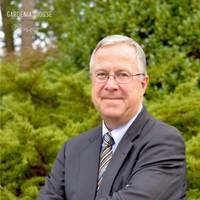 Peter C. Johnson, M.D. (EAC chair) is Chairman of Cell X Technologies, Inc., Co-Principal of MedsurgPI, LLC., and President and CEO of Scintellix, LLC. He is a University of Notre Dame and SUNY Upstate Medical University graduate. After General and Plastic Surgery training, Dr. Johnson practiced reconstructive surgery for ten years at the University of Pittsburgh where he founded and was the first President of the Pittsburgh Tissue Engineering Initiative. Subsequent roles were co-founder/CEO of Tissue Informatics, EVP of Life Sciences, CMO and CBO of Icoria, EVP, Entegrion, Inc. and VP, Research and Development and Medical and Scientific Affairs of Vancive Medical Technologies, an Avery Dennison business. He was recently acting CEO of Beacon Biotherapeutics, President and CEO of Cell X Technologies and Chief Medical Officer of Microcures, Inc. and Medical Business Advisor of Praetego, Inc. He has Chaired the Plastic Surgery Research Council, was President of the Pennsylvania Biotechnology Association and the Tissue Engineering Society, International and sits on the Industrial Advisory Board of the UNC/NC State Joint Program in Bioengineering, the Industrial Technology Advisory Board of the Michigan-Pittsburgh-Wyss Regenerative Medicine Resource Center, the Board of the North Carolina Tissue Engineering and Regenerative Medicine Society, the Board of the Siegel Rare Neuroimmune Association, the Board of Plakous Therapeutics, Inc., the Board of Opsepio Therapeutics, Inc. and is Chairman of the Board at Cell X Technologies. He is an Adjunct Professor of Biomedical Engineering at the University of North Carolina at Chapel Hill, of Biomedical Engineering at NC State University and Duke University and of Regenerative Medicine at Wake Forest University School of Medicine.
Peter C. Johnson, M.D. (EAC chair) is Chairman of Cell X Technologies, Inc., Co-Principal of MedsurgPI, LLC., and President and CEO of Scintellix, LLC. He is a University of Notre Dame and SUNY Upstate Medical University graduate. After General and Plastic Surgery training, Dr. Johnson practiced reconstructive surgery for ten years at the University of Pittsburgh where he founded and was the first President of the Pittsburgh Tissue Engineering Initiative. Subsequent roles were co-founder/CEO of Tissue Informatics, EVP of Life Sciences, CMO and CBO of Icoria, EVP, Entegrion, Inc. and VP, Research and Development and Medical and Scientific Affairs of Vancive Medical Technologies, an Avery Dennison business. He was recently acting CEO of Beacon Biotherapeutics, President and CEO of Cell X Technologies and Chief Medical Officer of Microcures, Inc. and Medical Business Advisor of Praetego, Inc. He has Chaired the Plastic Surgery Research Council, was President of the Pennsylvania Biotechnology Association and the Tissue Engineering Society, International and sits on the Industrial Advisory Board of the UNC/NC State Joint Program in Bioengineering, the Industrial Technology Advisory Board of the Michigan-Pittsburgh-Wyss Regenerative Medicine Resource Center, the Board of the North Carolina Tissue Engineering and Regenerative Medicine Society, the Board of the Siegel Rare Neuroimmune Association, the Board of Plakous Therapeutics, Inc., the Board of Opsepio Therapeutics, Inc. and is Chairman of the Board at Cell X Technologies. He is an Adjunct Professor of Biomedical Engineering at the University of North Carolina at Chapel Hill, of Biomedical Engineering at NC State University and Duke University and of Regenerative Medicine at Wake Forest University School of Medicine.
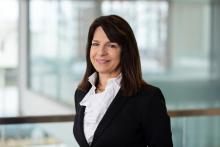 Julie Allickson, Ph.D., is the Michael S. and Mary Sue Shannon director of Mayo Clinic’s Center for Regenerative Biotherapeutics and the Otto Bremer Trust director, Biomanufacturing and Product Development, Center for Regenerative Biotherapeutics and Associate Professor of Regenerative Biotherapeutics. Dr. Allickson is leading the next phase of development of the Center for Regenerative Biotherapeutics as it delivers on innovations that Cure, Connect and Transform patient care in alignment with Mayo Clinic’s 2030 vision. She directs the enterprise-wide biomanufacturing strategy that aspires to introduce new regenerative therapeutics into the practice and establish Mayo Clinic as a category of one in regenerative medicine for rare and complex conditions. Dr. Allickson provides strategic leadership for all center activities and operations across Mayo Clinic. The Center for Regenerative Biotherapeutics has over 200 clinical trials and projects underway and has filed more than 150 regenerative patents. The center performs over 100,000 regenerative procedures annually. With more than 25 years of experience in clinical translation of cellular therapies and regenerative medicine products, Dr. Allickson has expertise in business management, regulatory affairs, strategic planning, project management and team building. She has served as an executive officer of a publicly traded company that builds services for cellular banking, including licensure of technology with international affiliates.
Julie Allickson, Ph.D., is the Michael S. and Mary Sue Shannon director of Mayo Clinic’s Center for Regenerative Biotherapeutics and the Otto Bremer Trust director, Biomanufacturing and Product Development, Center for Regenerative Biotherapeutics and Associate Professor of Regenerative Biotherapeutics. Dr. Allickson is leading the next phase of development of the Center for Regenerative Biotherapeutics as it delivers on innovations that Cure, Connect and Transform patient care in alignment with Mayo Clinic’s 2030 vision. She directs the enterprise-wide biomanufacturing strategy that aspires to introduce new regenerative therapeutics into the practice and establish Mayo Clinic as a category of one in regenerative medicine for rare and complex conditions. Dr. Allickson provides strategic leadership for all center activities and operations across Mayo Clinic. The Center for Regenerative Biotherapeutics has over 200 clinical trials and projects underway and has filed more than 150 regenerative patents. The center performs over 100,000 regenerative procedures annually. With more than 25 years of experience in clinical translation of cellular therapies and regenerative medicine products, Dr. Allickson has expertise in business management, regulatory affairs, strategic planning, project management and team building. She has served as an executive officer of a publicly traded company that builds services for cellular banking, including licensure of technology with international affiliates.
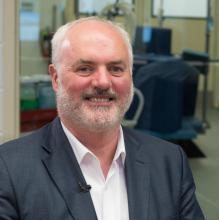 Dr. Frank Barry is Professor of Cellular Therapy affiliated with the Regenerative Medicine Institute (REMEDI) at the National University of Ireland Galway and the Translational Medicine Institute, Colorado State University. He has contributed to the fields of tissue engineering and regenerative medicine by developing innovative and successful cellular therapies for tissue repair, joint injury and arthritic disease. In a large body of basic and translational research, he has contributed to our current understanding of the phenotypic attributes of mesenchymal stromal cells that make them attractive candidates for advanced therapeutics. He has also contributed to the development of methods for automated, efficient and scalable cell expansion for GMP application and has been a leader in the development of clinical protocols for patient testing. He has coordinated clinical trials designed to test the efficacy of stromal cell delivery as a treatment for osteoarthritis. He contributes as a board member of multiple corporations and research bodies and has acted as an advisor to research agencies throughout Europe and North America. He has published widely in the areas of cell technology and therapeutic applications in arthritic disease and his work continues to be highly cited. He has been the recipient of the Marshall Urist Award for excellence in tissue regeneration research from the Orthopaedic Research Society.
Dr. Frank Barry is Professor of Cellular Therapy affiliated with the Regenerative Medicine Institute (REMEDI) at the National University of Ireland Galway and the Translational Medicine Institute, Colorado State University. He has contributed to the fields of tissue engineering and regenerative medicine by developing innovative and successful cellular therapies for tissue repair, joint injury and arthritic disease. In a large body of basic and translational research, he has contributed to our current understanding of the phenotypic attributes of mesenchymal stromal cells that make them attractive candidates for advanced therapeutics. He has also contributed to the development of methods for automated, efficient and scalable cell expansion for GMP application and has been a leader in the development of clinical protocols for patient testing. He has coordinated clinical trials designed to test the efficacy of stromal cell delivery as a treatment for osteoarthritis. He contributes as a board member of multiple corporations and research bodies and has acted as an advisor to research agencies throughout Europe and North America. He has published widely in the areas of cell technology and therapeutic applications in arthritic disease and his work continues to be highly cited. He has been the recipient of the Marshall Urist Award for excellence in tissue regeneration research from the Orthopaedic Research Society.
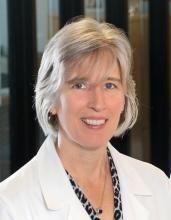 Kathleen Derwin, Ph.D. has been on the Staff of the Cleveland Clinic since 1998 and is Vice Chair of the Department of Biomedical Engineering . Dr. Derwin has extensive expertise in laboratory and translational research, including studies in human subjects. Her research is devoted to investigating tendon repair, including basic science of tendon healing, tissue engineered scaffolds, and diagnostic tools to interrogate interventions. She has been the PI on numerous grants from the NIH, DOD, and industry, and is currently the PI or co-I of three NIH grants that investigate patient, surgical and disease predictors of outcomes after rotator cuff repair (RCR) or total shoulder arthroplasty (TSA) surgery. Dr. Derwin is also an inventor on several patents and patent applications for innovative musculoskeletal technologies. She has longstanding collaborations with orthopaedic surgeons, and the contribution of her work to the field of shoulder surgery was recognized by induction into the society of the American Shoulder and Elbow Surgeons (ASES) in 2010. Dr. Derwin currently serves as the Director of the Musculoskeletal Research Center (MSRC) at Cleveland Clinic and is also the current Chair of the Tendon Section of the Orthopaedic Research Society.
Kathleen Derwin, Ph.D. has been on the Staff of the Cleveland Clinic since 1998 and is Vice Chair of the Department of Biomedical Engineering . Dr. Derwin has extensive expertise in laboratory and translational research, including studies in human subjects. Her research is devoted to investigating tendon repair, including basic science of tendon healing, tissue engineered scaffolds, and diagnostic tools to interrogate interventions. She has been the PI on numerous grants from the NIH, DOD, and industry, and is currently the PI or co-I of three NIH grants that investigate patient, surgical and disease predictors of outcomes after rotator cuff repair (RCR) or total shoulder arthroplasty (TSA) surgery. Dr. Derwin is also an inventor on several patents and patent applications for innovative musculoskeletal technologies. She has longstanding collaborations with orthopaedic surgeons, and the contribution of her work to the field of shoulder surgery was recognized by induction into the society of the American Shoulder and Elbow Surgeons (ASES) in 2010. Dr. Derwin currently serves as the Director of the Musculoskeletal Research Center (MSRC) at Cleveland Clinic and is also the current Chair of the Tendon Section of the Orthopaedic Research Society.
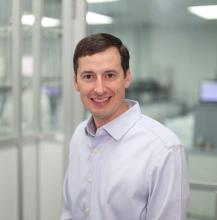 Dr. Jeff Ross brings more than 20 years of scientific, management, and regulatory experience in regenerative medicine, biologics, and medical devices to Miromatrix. His expertise includes concept development, fundraising, investor relations, preclinical trials, clinical trials, manufacturing, and product commercialization. He previously held various technical and management positions at Guidant, Athersys and SurModics. Since coming to Miromatrix in 2010, he has been pivotal in the development, manufacture and regulatory clearance of the innovative MIROMESH and MIRODERM product lines. He spearheaded the development, global patent strategy, and fundraising efforts for the revolutionary whole organ transplant program and its key decellularization and recellularization technologies leading to a successful IPO in 2021. Dr. Ross has over 30 patents, along with scientific publications in Nature and other peer reviewed journals. He holds a Master’s degree in Biomedical Engineering and a Ph.D. in Molecular, Cellular and Developmental Biology from the University of Minnesota. Dr. Ross serves on the Board of Directors for The Alliance of Regenerative Medicine (ARM) and the School Board of District 112.
Dr. Jeff Ross brings more than 20 years of scientific, management, and regulatory experience in regenerative medicine, biologics, and medical devices to Miromatrix. His expertise includes concept development, fundraising, investor relations, preclinical trials, clinical trials, manufacturing, and product commercialization. He previously held various technical and management positions at Guidant, Athersys and SurModics. Since coming to Miromatrix in 2010, he has been pivotal in the development, manufacture and regulatory clearance of the innovative MIROMESH and MIRODERM product lines. He spearheaded the development, global patent strategy, and fundraising efforts for the revolutionary whole organ transplant program and its key decellularization and recellularization technologies leading to a successful IPO in 2021. Dr. Ross has over 30 patents, along with scientific publications in Nature and other peer reviewed journals. He holds a Master’s degree in Biomedical Engineering and a Ph.D. in Molecular, Cellular and Developmental Biology from the University of Minnesota. Dr. Ross serves on the Board of Directors for The Alliance of Regenerative Medicine (ARM) and the School Board of District 112.
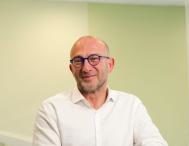 Dr. Mehmet Toner is the Helen Andrus Benedict Professor of Biomedical Engineering at the Massachusetts General Hospital, Harvard Medical School, and Harvard-MIT Health Sciences and Technology. He serves as the Director of Research at the Shriners Hospitals for Children in Boston, and the Co-Director of the Center for Engineering in Medicine and Surgery. Dr. Toner received BS degree from Istanbul Technical University and MS degree from the Massachusetts Institute of Technology (MIT), both in Mechanical Engineering. Subsequently he completed his PhD degree in Medical Engineering at Harvard-MIT Division of Health Sciences and Technology in 1989. His research involves microfluidics, nano- and micro-technologies, tissue engineering and regenerative medicine, cryobiology. Dr. Toner is also co-founder of multiple biotechnology and medical device start-ups. Dr. Toner is inducted to the U.S. National Academy of Engineering, U.S. National Academy of Inventors, and the U.S. National Academy of Medicine.
Dr. Mehmet Toner is the Helen Andrus Benedict Professor of Biomedical Engineering at the Massachusetts General Hospital, Harvard Medical School, and Harvard-MIT Health Sciences and Technology. He serves as the Director of Research at the Shriners Hospitals for Children in Boston, and the Co-Director of the Center for Engineering in Medicine and Surgery. Dr. Toner received BS degree from Istanbul Technical University and MS degree from the Massachusetts Institute of Technology (MIT), both in Mechanical Engineering. Subsequently he completed his PhD degree in Medical Engineering at Harvard-MIT Division of Health Sciences and Technology in 1989. His research involves microfluidics, nano- and micro-technologies, tissue engineering and regenerative medicine, cryobiology. Dr. Toner is also co-founder of multiple biotechnology and medical device start-ups. Dr. Toner is inducted to the U.S. National Academy of Engineering, U.S. National Academy of Inventors, and the U.S. National Academy of Medicine.

